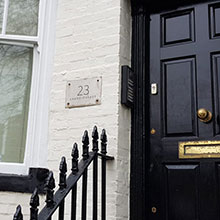
The end of the road for co-working?
As we adjust to life under lockdown, homeworking has become the new normal for vast swathes of the working population. Users of co-working spaces are no exception, as social distancing rules render the co-working business model, well, unworkable.
As we eagerly anticipate a return to some semblance of normality, the question is whether the Covid-19 pandemic has taken the sheen off co-working and the concept of bringing together strangers in an environment of shared desks and communal areas?
An explosion in the gig economy is one of the major drivers behind huge growth in demand for co-working spaces. There are currently around 18,700 coworking spaces around the globe according to Statista, a number that prior to the pandemic was expected to reach nearly 26,000 by 2025.
But the fallout from the pandemic has hit co-working hard. A global survey of over 14,000 coworking spaces by coworking marketplace website Coworker found that 72% have witnessed a significant drop in the number of people working from their space since the outbreak. No big surprises there. However, the lingering fear is that the pandemic will go on for many months or even years and even on the other side our working patterns may fundamentally change in a way that may prove terminal for the co-working concept.
72% of co-working spaces have witnessed a significant drop in the number of people working from their space since the Coronavirus outbreak
All this is potentially good for the flexible office space market generally, with demand for flexible space expected to explode as a result. Freelancers working remotely will always need somewhere to work and we could conceivably see a trend towards renting of smaller dedicated offices, that offer all the benefits of a space away from home to work, but without the disadvantages of a co-working arrangement.
Meanwhile the pandemic is serving as a catalyst for change and the future is flexible. In particular, workforce flexibility especially around capacity and the work mix of teams has been propelled to the top of the business agenda as companies are forced to be more creative about ways of working and more accepting of remote working as the norm.
In the short term, large corporations will likely look to “de-densify” their offices—both to help their employees manage the crisis and transition in the recovery, as well as to avoid similar disruptions in the future. In the long term too, the experience of the pandemic is likely to result in big workforce changes.
While remote working was forced on many corporates as a necessary evil, it has opened eyes to the benefits of a more disparate workforce operating out of a series of smaller satellite offices. Big companies of all kinds already operate in this way and it’s a trend only likely to continue.
Call on 01273 917977 or complete our enquiry form
enquire book a viewing

